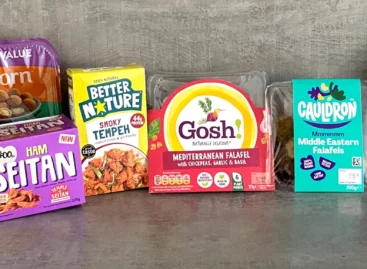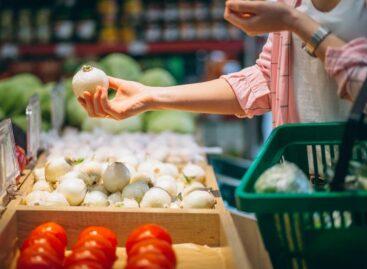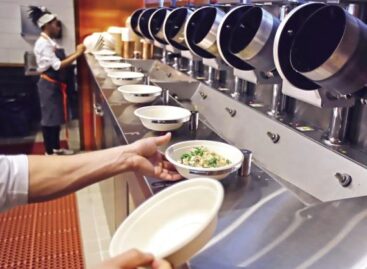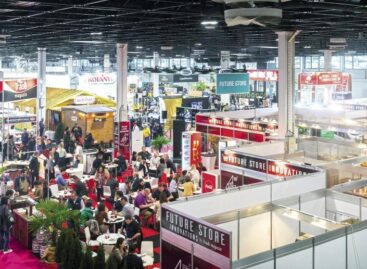Magazine: The disruption of retail from 2019 to 2020
Hungarian consumer confidence was at 78 points at the end of 2019 – the European average was 86 points. At this time 38 percent of Hungarians were optimistic about their job prospects, and 33 percent said their financial situation was good or excellent.


Ágnes Szűcs-Villányi
managing director
Nielsen
Consumers were the most worried about the healthcare system and rising prices. Retail trade was performing extremely well in 2019: more than 17,000 stores sold nearly HUF 2,500 billion worth of food and drug products (Nielsen audits 100 categories in the former and 80 in the latter); annual sales were up 7 percent from the 2018 level in terms value, while volume sales increased by 2 percent. In total sales the market share of private label products was below 30 percent. The most important store format was discount supermarkets, which now have a 27-percent market share in Hungary. Between January and December 2019, Hungarians spent HUF 2,000 billion on food categories, 7 percent more than in 2018. The top categories were processed meat, beer and cheese – sales in the last two developed above the average. As for drug products, sales increased by 6 percent and in value they surpassed HUF 470 billion; in volume, sales stayed put. Based on value sales, the top category was laundry detergent, followed by toilet paper and fabric softener. When buying drug products, Hungarians spend 4 forints from every 5 on manufacturer brands: the value share of private label products was 18 percent, just like in 2018.
In 2020 the COVID-19 pandemic brought never before seen changes in retail trade too. Ever since its start Nielsen has been monitoring how consumption behaviour has been changing at a global level and in Hungary. The retail index also reveals which food and drug categories ended up in the shopping baskets in different phases of the pandemic. Consumer reactions perfectly indicate how the pandemic situation was developing in retail trade too.
On Week 9 of 2020 (between 24 February and 1 March) value sales of multinational retail chains jumped 25 percent, as people started stockpiling. For instance, 91 percent more disinfectants and 142 percent more washing and hygiene products were sold than in the same period of 2018. Sugar value sales soared by 178 percent, flour sales grew by 168 percent, pasta, rice and cooking oil sales also skyrocketed; canned food sales rose more than 100 percent.
On Week 11 (9-15 March) the government’s announcement of the emergency situation made consumers run to the shops. In this one week period, Nielsen registered HUF 57 billion sales, almost 1.5 times more than in the same period of 2018. Value sales of drugstores were up more than 50 percent from the level of Week 11 of 2018. Toilet paper sales nearly tripled and vitamin sales quadrupled; cleaning product and soap sales also surged. Sugar value sales tripled, sauce sales augmented by 195 percent and pasta sales jumped 192 percent; flour and rice sales also soared.
On Week 13 (23-29 March) value sales by hyper- and supermarkets and drugstores amounted to HUF 39 billion. This result was only 4 percent higher than in the base period one year earlier, and more than 30 percent lower than the sales results on Week 12. The introduction of special opening hours (between 9:00 and 12:00 only those consumers can go shopping who are older than 65 years) on 27 March also contributed to the lower sales performance.
Nielsen data and the company’s representative European survey (conducted between 26 March and 8 April 2020 in 30 countries) revealed that one-third of Hungarians think the COVID-19 pandemic will end in 4-6 months; however, 5 percent reckon that the pandemic will be longer than 12 months. In Hungary, online retail sales soared by 76 percent in value this March, compared with March 2019. Online food sales jumped 66 percent and drug sales doubled.
In light of the spreading of the coronavirus, Nielsen has differentiated between six stages in the global transformation of consumer behaviour. Nielsen’s forecast is that these phases will develop predictably.
When this article was written in early May, the special measures were still in force, but we can already see the light at the end of the tunnel. People are slowly returning to their daily routines. The consumption habits that are taking shape now can transform the planning of production strategies in the long term. Food companies need to focus on developing simpler cooking and cleaning products so that the time people spend in their homes can be even more enjoyable. Then longer the COVID-19 pandemic lasts, the more the new routines will be embedded in people’s lives, creating many new opportunities for manufacturers. //
Related news
Related news
SIRHA Budapest 2026 – The biggest domestic celebration of the HoReCa sector
🎧 Hallgasd a cikket: Lejátszás Szünet Folytatás Leállítás Nyelv: Auto…
Read more >









